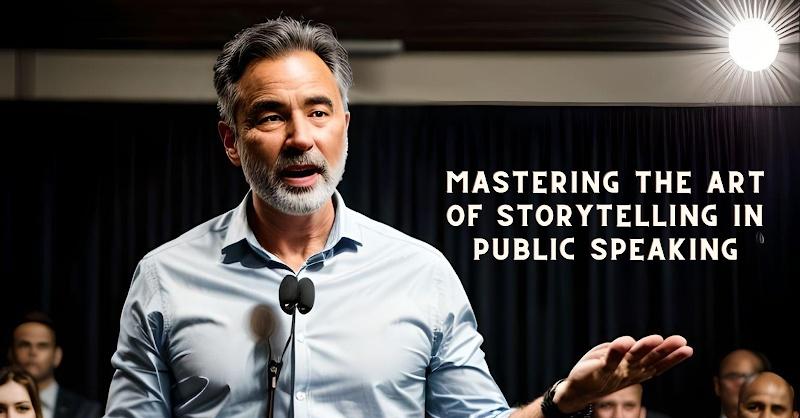You’re in the perfect place if you’ve ever wondered, “What is public speaking?” or have thought about getting a “Public Speaking Certification.” Public speaking is about connecting with, involving, and making a lasting impression on an audience. It’s not just about standing in front of them and imparting knowledge. Learning the art of public speaking storytelling is one of the best methods. In this blog we’ll explore the art of public speaking and storytelling.
Understanding the Essence of Public Speaking
Before exploring the storytelling component, let us clarify the fundamentals. Public speaking is telling a tale or a message to an audience. It could be an official speech, a casual conversation, or anything in the same way. Whether you’re speaking to a virtual group of individuals or a room full of people, the important thing is to communicate clearly and keep them interested in the conversation.
Is Public Speaking Certification Worth It?
It’s possible that you’ve heard about getting a “Public Speaking Certification.” Does the effort and time seems worth it? That is dependent upon your ambitions and aims. Certifications can be one of many factors determining your ability to speak in public, even though they might offer insightful information and useful strategies. It’s about developing your abilities, accumulating knowledge, and constantly improving.
The Power of Storytelling
Let’s now discuss storytelling, the secret weapon of public speaking. People are storytellers by nature. We read them, listen to them, and even tell them ourselves as we age. Stories draw us in, arouse our feelings, and help us remember facts. Why not use this force to your advantage when you give public speeches?
Building Connection through Stories
The main objective of public speaking is to establish a connection with your audience. Telling stories helps you build a connection with your audience. They help you become more than just a speaker of facts—they help you become human. Transcending words can strengthen relationships by sharing personal tales, experiences, or made-up stories.
Engaging Your Audience
Have you ever been at a presentation when the data seemed to go on forever? I mean, it’s not the most fun experience. That’s where the power of storytelling comes in handy. You may break up the monotony, keep your audience interested, and make sure they remember your message by incorporating anecdotes into your speech.
Crafting Compelling Stories
Now that you know the importance of narrative in public speaking, let’s talk about creating gripping tales that captivate listeners.
Know Your Audience
Every great tale starts with understanding its target audience. They are who? What needs, wants, and interests do they have? Make your tale relevant and approachable to your audience by adjusting its tone to suit them.
Structure Matters
Like a well-built house, a well-structured story makes an impression and stands strong. Employ the traditional narrative framework of introduction, conflict, climax, and resolution. Start with a hook to draw in the audience, set up the tension, reveal the conflict or issue, and offer a satisfactory conclusion or takeaway.
Emotion is Key
The storyteller’s fuel is emotion. Emotions, whether happiness, despair, excitement, or terror, add significance to your story. People will relate to you more deeply if you are genuine in sharing your emotions and experiences.
Visualize and Paint a Picture
Utilise evocative language and pictures to transport your audience on an adventure. Assist readers in picturing your tale’s scene, people, and activities. Your audience will become more involved in your story the more intricate and compelling it is.
Practice Makes Perfect
It’s time to put everything you’ve learned about the craft of storytelling in public speaking into practice. Recall that the secret to mastery is practice.
Rehearse Your Story
Rehearse your story several times. This will not only help you recall the story, but it will also help you feel more at ease telling it. Your ability to connect with your audience will improve with increased confidence.
Gather Feedback
Never hesitate to ask for comments. Tell your tale to mentors, family, and friends, and get their feedback. Giving yourself constructive feedback can help you become a better storyteller.
Adapt and Evolve
As you speak in front of crowds and various settings, you will gain experience. Modify your narratives according to the audience and situation. Being adaptable and versatile is a great advantage in public speaking.
Conclusion
It is worthwhile to put in the effort to become a story public speaking expert. It helps you to connect more deeply with your audience, evoke strong feelings in them, and leave a lasting impression. While a “Public Speaking Certification” can provide you with helpful tools, practise and dedication are what will actually help you become a better public speaker.
